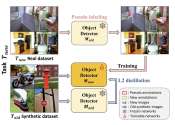How smart toys may be spying on kids: What parents need to know
Toniebox, Tiptoi, and Tamagotchi are smart toys, offering interactive play through software and internet access. However, many of these toys raise privacy concerns, and some even collect extensive behavioral data about children, ...
Aug 26, 2024
0
13









